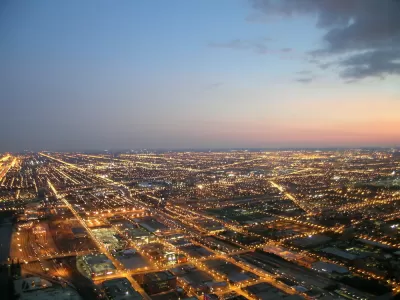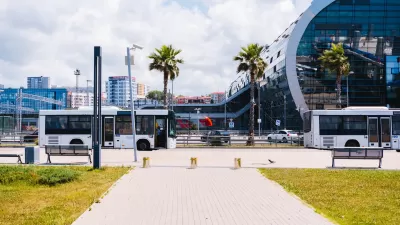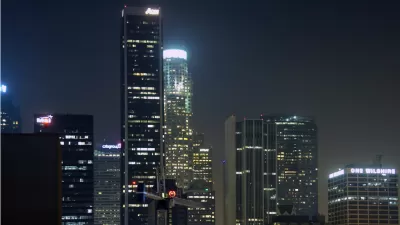The nighttime illumination of Chicago is almost finished with a complete overhaul of its streetlights, producing a dramatic effect in the nighttime environment of the city.

Mary Wisnieski reports from Chicago:
…in 2017, the city started swapping out the sodium vapor lights for energy-efficient LEDs, which create a whiter radiance. When the project is complete in 2021, the city will have replaced 270,000, or 85%, of its streetlights. As of mid-December, 185,000 fixtures had been replaced, said Chicago Department of Transportation spokesman Michael Claffey.
The changes are expected to save the city $100 million over ten years, according to Wisniewski, but the city at night will never look the same again. Meanwhile, concerns about the potentially harmful public health effects of the light persist.
Included in the LED deployment program is an effort to focus streetlights downward, cutting light pollution and allowing for more visible stars at night, though the impact of that effort is still to early to evaluate, according to a source from the Adler Planetarium. No word on whether the city is motivated by the exemplary "dark-sky" movement made most famous by the city of Tucson, Arizona.

Maui's Vacation Rental Debate Turns Ugly
Verbal attacks, misinformation campaigns and fistfights plague a high-stakes debate to convert thousands of vacation rentals into long-term housing.

Planetizen Federal Action Tracker
A weekly monitor of how Trump’s orders and actions are impacting planners and planning in America.

In Urban Planning, AI Prompting Could be the New Design Thinking
Creativity has long been key to great urban design. What if we see AI as our new creative partner?

Florida Seniors Face Rising Homelessness Risk
High housing costs are pushing more seniors, many of them on a fixed income, into homelessness.

Massachusetts Budget Helps Close MBTA Budget Gap
The budget signed by Gov. Maura Healey includes $470 million in MBTA funding for the next fiscal year.

Milwaukee Launches Vision Zero Plan
Seven years after the city signed its Complete Streets Policy, the city is doubling down on its efforts to eliminate traffic deaths.
Urban Design for Planners 1: Software Tools
This six-course series explores essential urban design concepts using open source software and equips planners with the tools they need to participate fully in the urban design process.
Planning for Universal Design
Learn the tools for implementing Universal Design in planning regulations.
Gallatin County Department of Planning & Community Development
Heyer Gruel & Associates PA
JM Goldson LLC
City of Camden Redevelopment Agency
City of Astoria
Transportation Research & Education Center (TREC) at Portland State University
Jefferson Parish Government
Camden Redevelopment Agency
City of Claremont





























